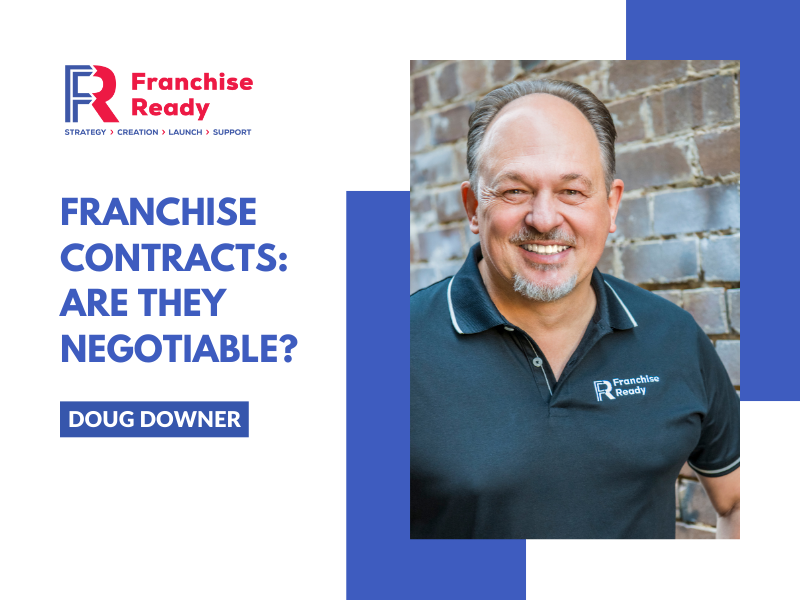We often are asked this question by budding first-time franchisees, especially those considering emerging brands. The reality is, the vast majority of franchisors are not open to negotiating their franchise contracts. It is advisable to have a lawyer with franchise experience look at any potential franchise contract and give you an honest assessment about which parts of the contract may or may not be advantageous for you as the franchisee.
It is important to note, however, that the franchisor’s main goal in the contract is to protect the value and integrity of the franchise as a whole, as well as it should be. If the entire franchise fails, none of the franchisees will have anything left. For this reason, most franchisors don’t negotiate their franchise contracts, and it may even be unrealistic to expect franchisors to go out of their way to accommodate franchisees.
Some emerging franchisors may be more negotiable because the questions may not have been posed to them previously, and often, when a franchise agreement is drafted by the franchisor’s lawyer, it is done to protect the franchise system and can be onerous. I have always held the view that if the question the franchisee or their lawyer is asking makes sense, then we should make the change.
If you find clauses in the contract that are non-negotiable for you, you can ask questions of your potential franchisor to find out why those clauses were included and whether the franchisor would consider taking them out of the contract, but chances are the franchisor will not negotiate on anything of any importance. If you feel the contract is unfavourable and would prevent you from getting a good return on your investment, your best bet is probably to pursue a different franchise with more favourable terms.
Why negotiable contracts may not be a good thing for franchisees?
There are good reasons why franchisors don’t typically negotiate contracts. Most franchises have been in existence for years and have developed successful business models. They usually know what works far better than their franchisees do, and so, they insist on setting up the contract in a way that they know will work out well for both them and the franchisees.
In addition, franchisors have other franchisees that they have worked with before the current location. If they negotiate with you, how will their existing franchisees react? Negotiating might open up a door for existing franchisees to demand the same deal you got or to become unsatisfied with their own contracts. Franchisors would naturally want to avoid this, which explains the policy of not negotiating contracts.
It is actually a sign of strength on the franchisor’s part not to negotiate with potential franchisees. It shows confidence in the success of their previous contracts and in their system of franchising. You should ask if negotiation is possible, but if the franchisor seems willing to negotiate any major points of the contract, it could very well be a red flag that there is some flaw in their business model. You may want to proceed with caution.
Negotiations are uncommon for franchise contracts but sometimes do happen for smaller items, and some early-stage franchisors may be more negotiable on the commercial terms rather than the
legal provisions as they want to get their first few franchisees signed up. They typically won’t negotiate on the ongoing royalties or marketing fund expenses as they need to be consistent across the group, but there may be some wiggle room on the initial franchise fees and some of the ancillary costs. However, once the brand has established value in the franchise, the franchisor will not negotiate the commercial aspects.
Small negotiations you may be able to make
There are some minor negotiations that may be possible with some franchise contracts. In these small areas, you may be able to get more favourable terms, but it won’t really affect the main operations of the franchise. Newer, less established franchises are usually more likely to be willing to negotiate than well-established ones.
Installment terms for your franchise fee (vendor finance)
If the emerging franchisor won’t discount the initial franchise fee, it may be worth asking them to vendor finance the cost on agreed terms or through a higher ongoing franchise royalty until the amount of the initial franchise fee is paid. If a franchisor agrees to this, they may request an interest component on the amount being vendor financed, and they will set up a vendor loan agreement to reflect this.
Need assistance with negotiating or evaluating a franchise contract? Get in touch with the Franchise Ready team [email protected]
Learn more about franchise contracts in Doug Downer’s Book Invested, Get your copy here



